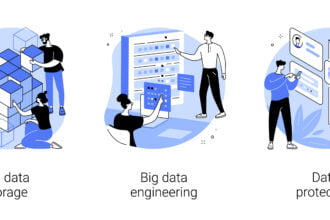Have you ever posted something on Facebook or Twitter and felt immediate regret? Scrambling to delete something that truly cannot be undone? You’re not alone.
From Charlie Sheen tweeting his phone number, to Anthony Weiner tweeting a questionable private picture, down to the recent tweet from New York Times’ Brian Stelter leaking news of Christiane Amanpour departing as host of ABC’s “This Week.”
You know as well as I do that it’s not just the celebrities who have been getting themselves into social media hot water. I’ve seen people post the most ridiculous updates to their feeds, like the handful of Vancouver rioters posting Facebook updates bragging about the damage they’d done. For a real head-shaker, type “I lost my phone” in your Facebook search bar and see how many people are publicly posting their contact details.
Recently, a friend mistakenly tweeted his credit card number and expiry date. This happened because his tweets are delivered to his iPhone in the same format as text messages, so he thought he was sending an SMS. Interestingly, he noted a few new followers (within minutes), one of which was a self-proclaimed hacker according to his bio. Yikes!
I once saw someone post that social media was like a needy girlfriend: “Facebook asks me what I’m thinking, Twitter asks me what I’m doing and Foursquare asks me where I am.” It’s funny, but does sharing your likes, interests and whereabouts present you as an easy target to cyber criminals? A recent survey cited 15% of respondents admitting to posting their current location or travel plans, 34% their full birth date and 21% had posted their children’s names and one in five said they hadn’t used Facebook’s privacy controls.
In 2010, Consumer Reports estimated that cybercrime cost American consumers $4.5 billion over two years. A few things to keep in mind when it comes to protecting yourself:
- Don’t use your full birth date in your profile (Or, if you do – utilize privacy settings to make sure it’s only available to those you want to see it)
- Utilize privacy controls (This applies to Facebook, Twitter, Google+, whatever network you’re using)
- Post your child’s name in a caption
- Don’t broadcast you’ll be out of town (Unless following it up with ‘And _______ is taking care of my place!’)
- Leverage Facebook Lists to control who sees what and when. I like to use them for industry-specific posts to avoid my mom replying with “What’s a Foursquare?”
- Do a good ol’ Facebook friend clean-up. With 23% of Facebook users admitting they didn’t know some of their “friends” well enough to feel completely comfortable about their own or their family’s security or safety and 6% admitting to having a friend who made them uneasy about those things, this is a commonsense way to protect yourself.
- Use a strong password
Let’s talk about passwords for a minute. Is yours painfully obvious? Does it include the name of your partner, child or pet? If so, give yourself a shake! You likely don’t use your birth date as your banking PIN, so why do it online? According to Consumer Reports, 75% of Americans don’t use the strongest kind of passwords for their most sensitive accounts. Here’s some more food for thought: 32% of respondents used a personal reference in their passwords, 29% store passwords on a list they carry with them, near their computer, or in an insecure file on their tablet or mobile device and almost 20% used the same password for more than five accounts.
Password 101: Strong passwords should contain at least eight characters and have a combination of upper and lowercase letters, a numeral and a special character.
The inadvertent posting of non-sensitive personal information may seem innocent but there is a dark side to sharing your interests, location, and even favourite local pub. Studies have shown that we’re not choosing the best passwords, and the likes of Charlie Sheen, Anthony Weiner and New York Times’ Brian Stelter have proven anyone can make a bad social media move.
Millions of people worldwide are constantly sharing personal and private information with friends (and strangers) on social networks. Think before you tweet and be smart about what you’re sharing.













